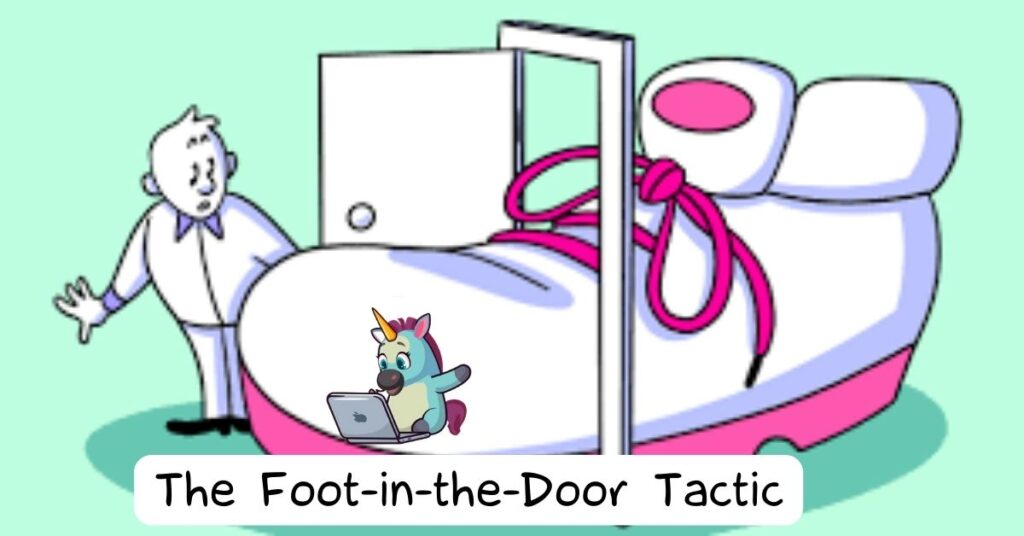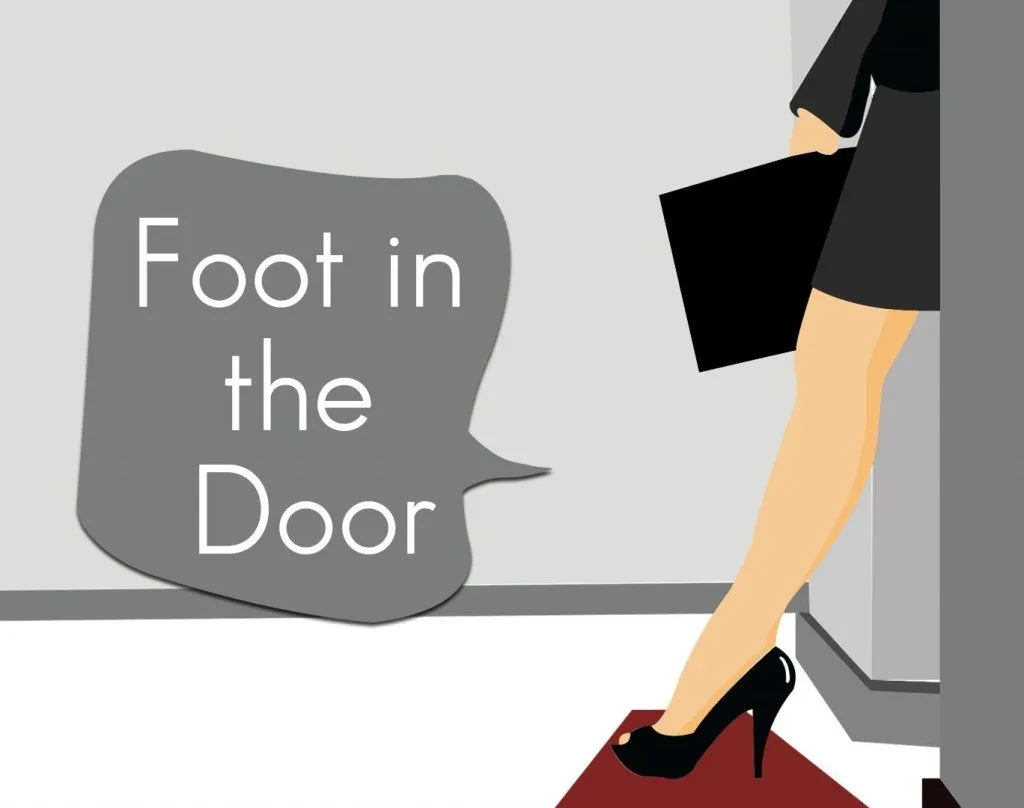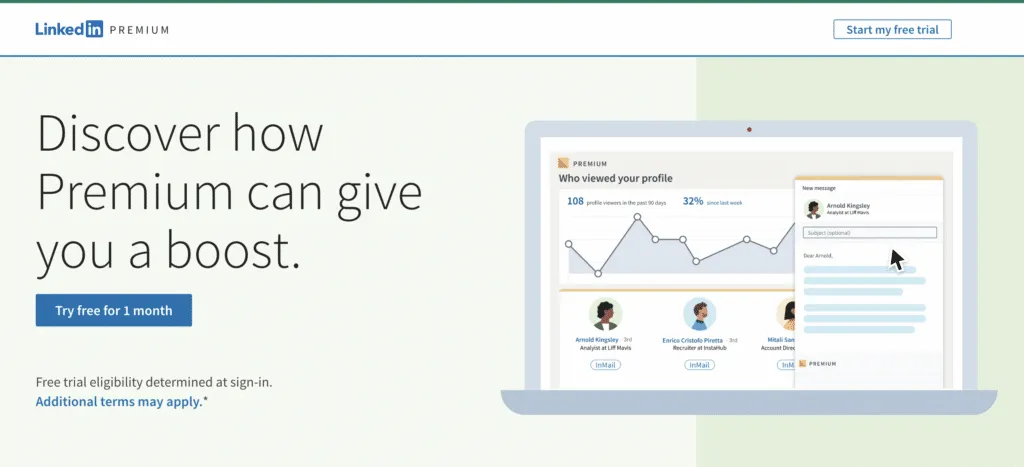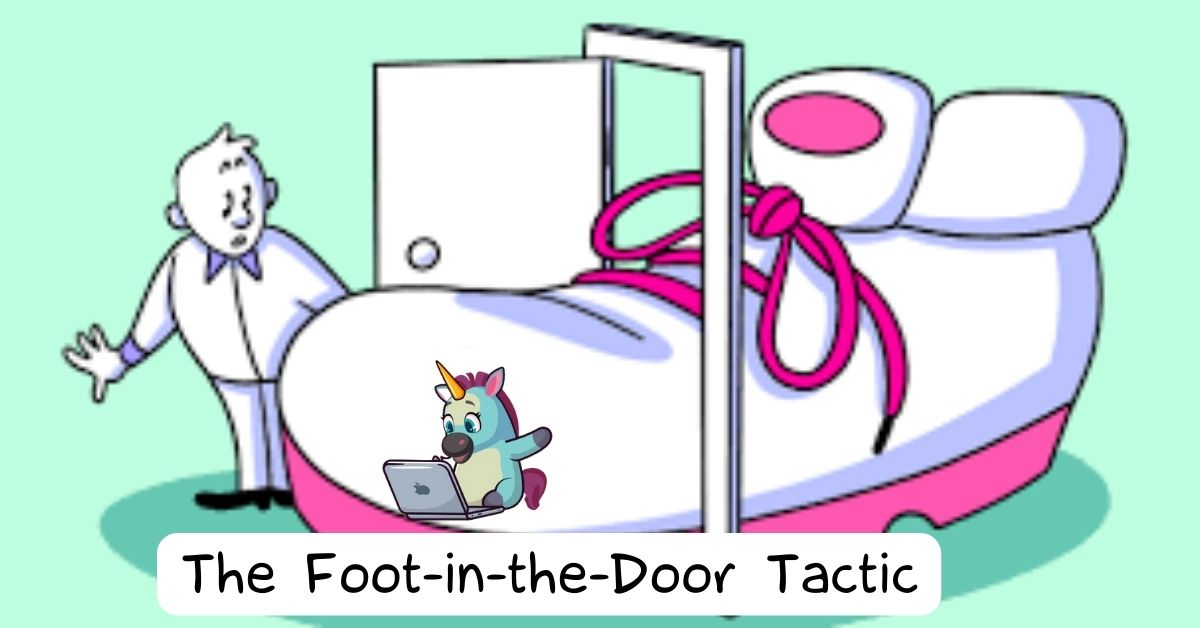
Ever been asked for a tiny favor that somehow led to a much bigger commitment?
That’s no accident.
This subtle persuasion technique is known as the “foot-in-the-door” tactic.
But wait…
How does a small request pave the way for larger ones, and why is it so effective in marketing?
The psychology of incremental compliance.
Although it might seem counterintuitive, this marketing principle suggests that starting small can lead to bigger commitments later.
Savvy marketers and businesses leverage this tendency to boost engagement and drive sales.
It’s as if our brains say, “I’ve already said yes once, so why not again?”
🧠 The Psychology of Incremental Compliance

It all comes down to our desire for consistency and self-perception.
When we agree to a small request, we see ourselves as helpful or compliant.
This initial commitment can make us more likely to agree to larger requests later.
The “foot-in-the-door” approach exploits this psychological tendency by starting with a minor ask before gradually escalating, creating a sense of investment in the process.
⚖️ The Good, the Bad, and the Compliance Trap

While the foot-in-the-door tactic can be a powerful tool for driving conversions, it’s not without its challenges:
On the positive side, a well-executed foot-in-the-door strategy can:
- Increase customer engagement and loyalty
- Build trust through gradual commitments
- Improve overall conversion rates
However, there are also potential pitfalls to consider:
- Risk of appearing manipulative if not done ethically
- May backfire if the larger ask is too extreme
- Requires careful planning and execution
🚨 The Impact of “Foot-in-the-Door” on Digital Marketing

In the realm of digital marketing, the foot-in-the-door principle can have significant impacts:
- Lead Generation: Starting with small commitments like newsletter signups can lead to sales.
- Content Marketing: Free content can pave the way for paid products or services.
- Social Media Engagement: Small interactions can lead to stronger brand relationships.
- Customer Loyalty: Minor initial purchases can evolve into long-term customer value.
“Foot-in-the-Door” Marketing Masters
Check out these brands that have mastered the art of leveraging the foot-in-the-door principle:
Dropbox
Dropbox’s free basic plan often leads users to upgrade for more storage.

LinkedIn’s free networking features can entice users to invest in premium services.

Amazon Prime
Amazon’s free trial period often converts users into long-term subscribers.

Spotify
Spotify’s free tier introduces users to the service, encouraging paid upgrades.

By studying these examples, understanding the psychology behind the foot-in-the-door principle, and considering the potential traps, you can develop a balanced marketing strategy that builds relationships and drives conversions while respecting your audience’s boundaries.


Leave a Reply